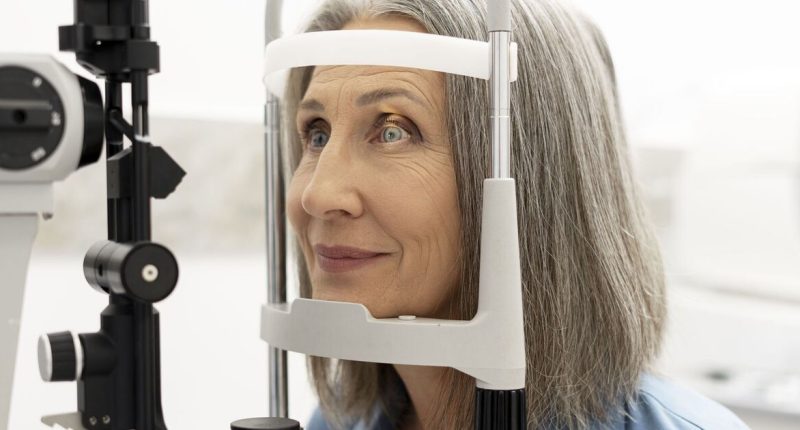Share this @internewscast.com
People with diabetes who do not keep their blood sugar under control are three times more likely to develop eye disease in later life, research suggests. Experts looked at the health of more than 5,600 people in England, with an average age of 66, across 14 years.
Those with uncontrolled diabetes, whose blood sugar levels were too high at the start of the study, had a 31% risk of developing diabetic eye disease. This compared to a risk of just 9% for participants with diabetes whose glucose levels were in the normal range. Diabetic eye disease commonly involves diabetic retinopathy, where high blood sugar damages the retina at the back of the eye.
High levels — above 6.5% on a HbA1c test, which reflects blood sugar levels over two months — were also linked to an increased risk of glaucoma and macular degeneration.
Study co-author Dr Stephen Jivraj, of the UCL Institute of Epidemiology & Health Care, said the findings were important as rising numbers of people are being diagnosed with diabetes.
He said: “The number of older people with diabetes in England is expected to increase rapidly in coming years. In the 2000s, the proportion of working-age people with a diabetes diagnosis more than doubled, from 2.8% to 6.8%.
“These findings show how important it is that people with diabetes are diagnosed and are supported in managing the condition, as this will reduce their chance of potentially debilitating eye disease.”
The research also highlighted the importance of receiving a diagnosis. People with undiagnosed diabetes had a 23% higher risk of diabetic eye disease and 38% higher risk of macular degeneration than those whose condition was under control.
The study’s first author Caitlin Lin, now a PhD candidate at the UCL Global Business School for Health, said: “The study highlights the importance of eye examinations among those in older age, especially those with a diabetes diagnosis.
“It also supports wider testing for diabetes in the general population, to reduce the number of people who do not realise they have the condition and could therefore be at a higher risk of eye disease than if they had a diagnosis.”
Natasha Marsland, senior clinical advisor at Diabetes UK, said it was ”vitally important that people living with diabetes are supported to manage their condition, helping them to live well and prevent life-altering complications”.
She added: “Fundamental to this is having an annual review, which includes health checks such as diabetic eye screening to spot any early signs of eye damage.
“Left untreated, this damage could lead to significant problems including sight loss.” The findings were published in the journal BMJ Open.












